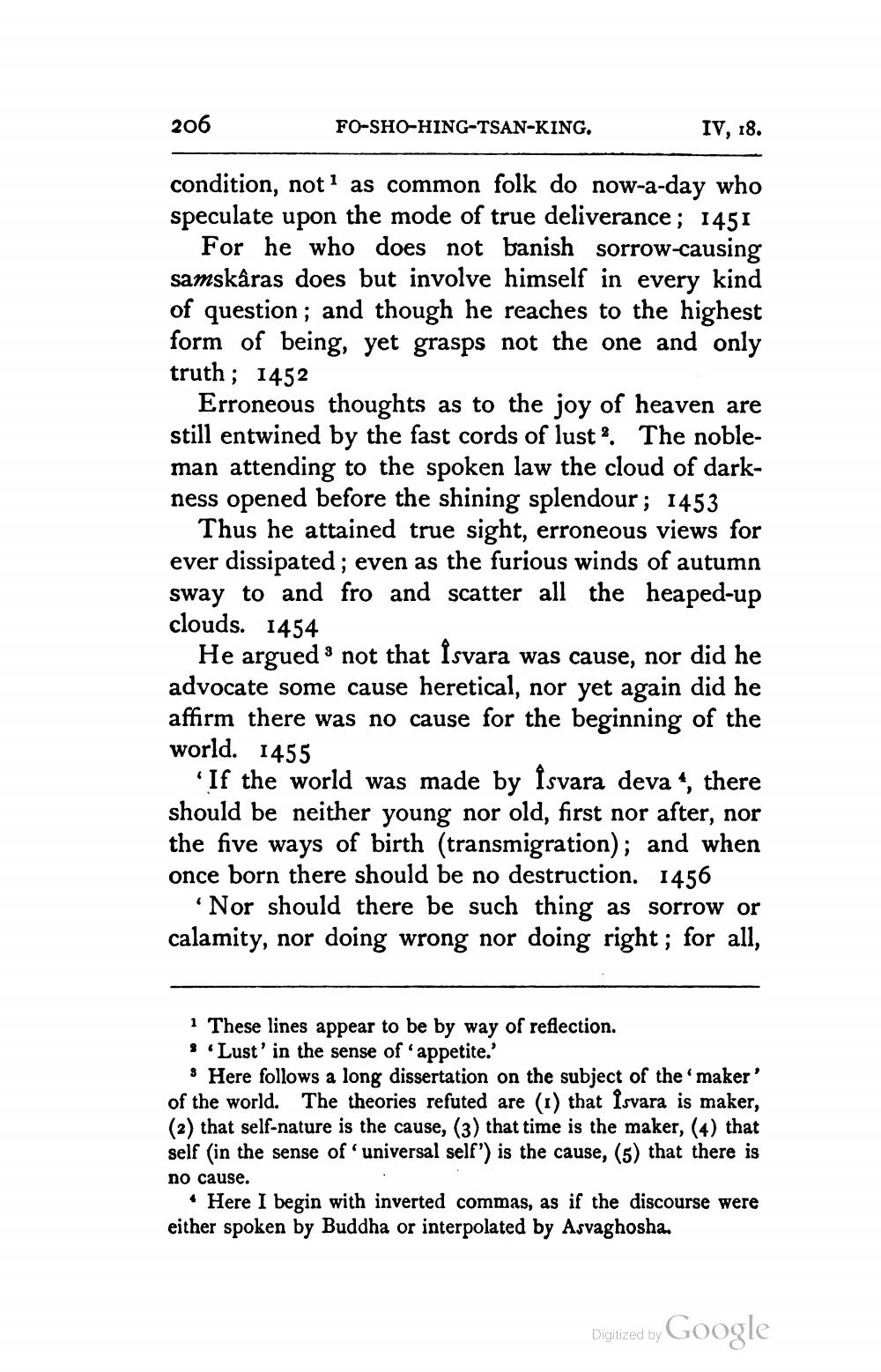________________
206
FO-SHO-HING-TSAN-KING.
IV, 18.
condition, not as common folk do now-a-day who speculate upon the mode of true deliverance; 1451
For he who does not banish sorrow-causing samskâras does but involve himself in every kind of question; and though he reaches to the highest form of being, yet grasps not the one and only truth; 1452
Erroneous thoughts as to the joy of heaven are still entwined by the fast cords of lust %. The nobleman attending to the spoken law the cloud of darkness opened before the shining splendour ; 1453
Thus he attained true sight, erroneous views for ever dissipated; even as the furious winds of autumn sway to and fro and scatter all the heaped-up clouds. 1454
He argued : not that Isvara was cause, nor did he advocate some cause heretical, nor yet again did he affirm there was no cause for the beginning of the world. 1455
'If the world was made by Isvara deva“, there should be neither young nor old, first nor after, nor the five ways of birth (transmigration); and when once born there should be no destruction. 1456
Nor should there be such thing as sorrow or calamity, nor doing wrong nor doing right; for all,
· These lines appear to be by way of reflection. 9 Lust' in the sense of appetite.
Here follows a long dissertation on the subject of the maker' of the world. The theories refuted are (1) that I svara is maker, (2) that self-nature is the cause, (3) that time is the maker, (4) that self in the sense of universal self') is the cause, (5) that there is no cause.
• Here I begin with inverted commas, as if the discourse were either spoken by Buddha or interpolated by Asvaghosha.
Digitized by Google




